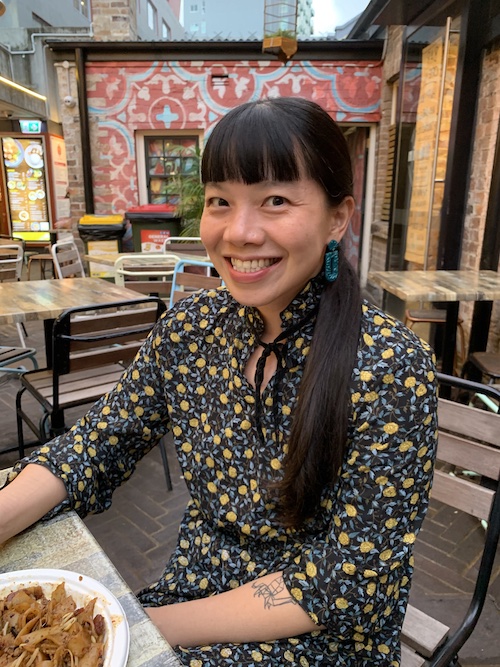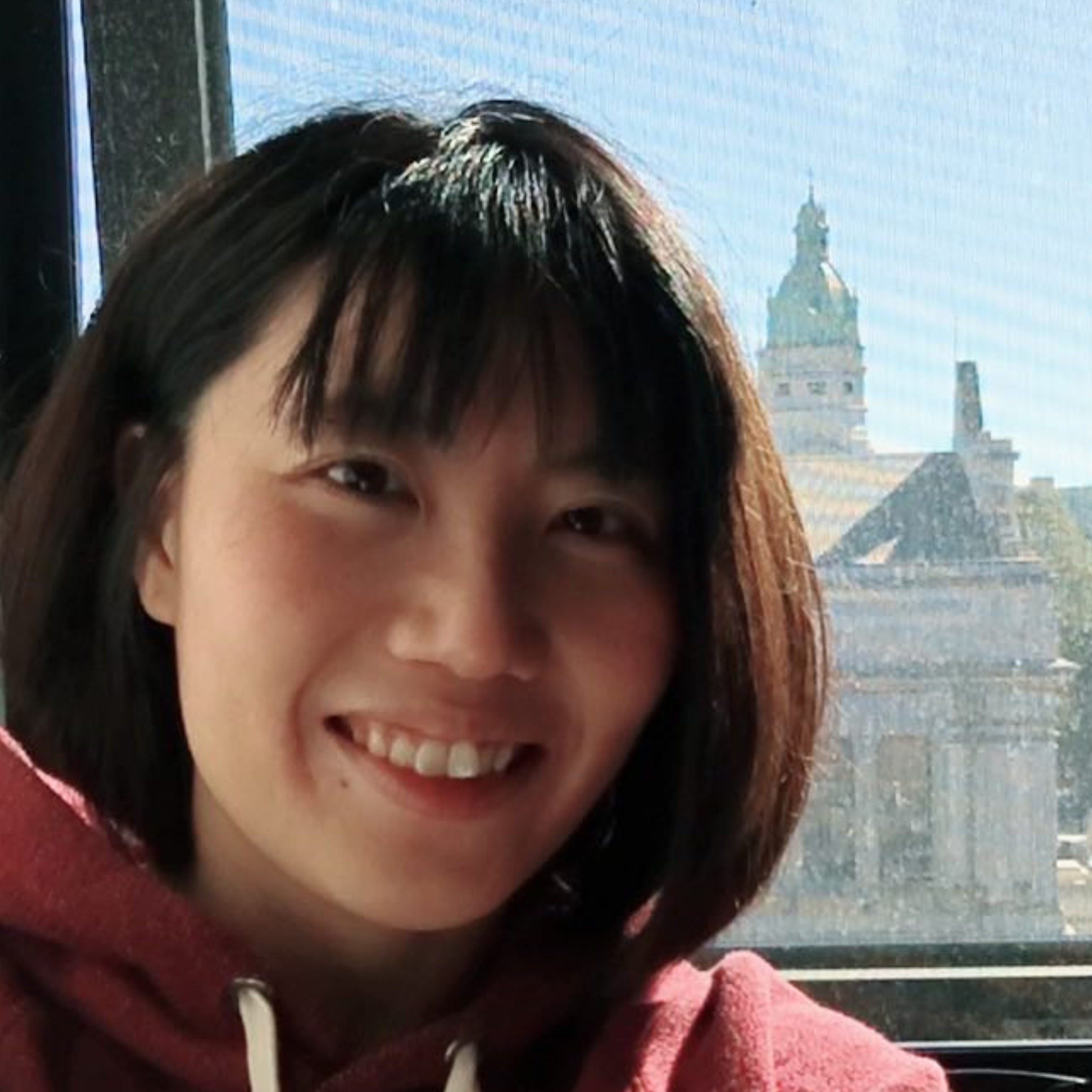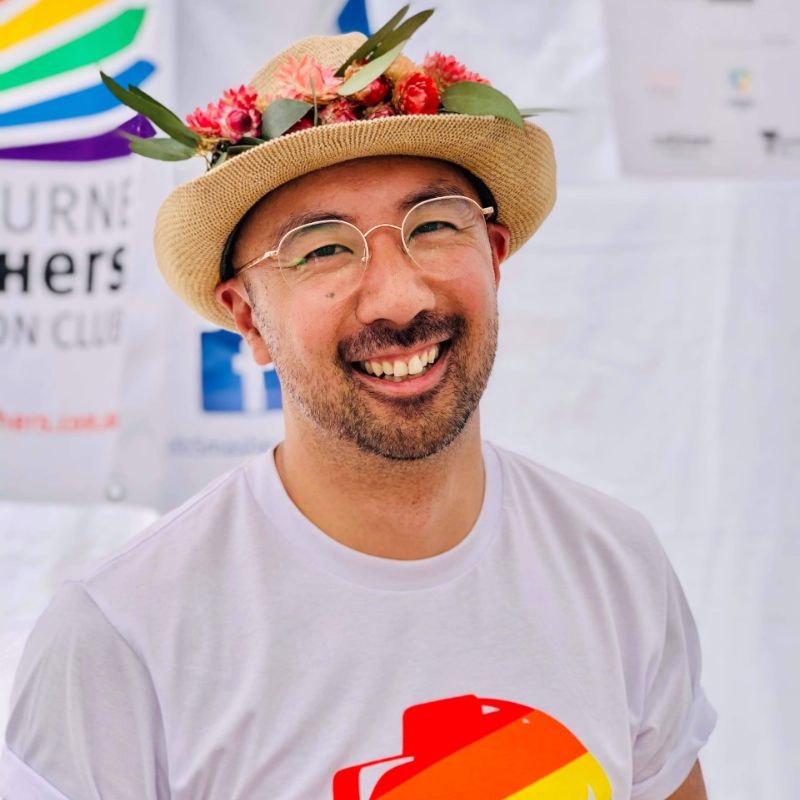Queer Chinese Voices (Catch up Online)
 Queer Chinese Voices is the first forum of its kind, organised by the Institute for Australian and Chinese Arts and Culture (IAC) at Western Sydney University in partnership with The China Studies Centre (CSC) at the University of Sydney. This online forum was held on Tuesday 14 March 2023, 4 pm to 7.30 pm (AEST) in celebration of Sydney WorldPride 2023 – the first WorldPride in the Southern Hemisphere. The forum featured prominent voices in art, literature and history, music, cultural studies and queer studies via keynote speeches and panel discussions by leading experts on LGBTIQA+ topics throughout the Sinosphere (mainland China, Taiwan, Hong Kong), Australia and around the world.
Queer Chinese Voices is the first forum of its kind, organised by the Institute for Australian and Chinese Arts and Culture (IAC) at Western Sydney University in partnership with The China Studies Centre (CSC) at the University of Sydney. This online forum was held on Tuesday 14 March 2023, 4 pm to 7.30 pm (AEST) in celebration of Sydney WorldPride 2023 – the first WorldPride in the Southern Hemisphere. The forum featured prominent voices in art, literature and history, music, cultural studies and queer studies via keynote speeches and panel discussions by leading experts on LGBTIQA+ topics throughout the Sinosphere (mainland China, Taiwan, Hong Kong), Australia and around the world.
Full Program here
Welcome and Opening Remarks
KEYNOTE 1 Queer Filmography Across the Sinosphere
KEYNOTE 2 My Queer Chinese Ear
PANEL 1 Queer Chinese Connections in Film, Television and the Media
PANEL 2 Crossing Boundaries within the Queer Chinese Diaspora
PANEL 3 Deconstructing Conventions of Gender
Keynotes

| Enter the Clowns: An Introduction to Cui Zi’en’s Literary and Cinematic Aesthetics Prof Michael Berry, University of California, Los Angeles | California Abstract: For more than three decades, Cui Zi’en has been a pioneering figure in the queer cultural scene in China. As a novelist, filmmaker, educator and activist, Cui has been at the forefront of a movement that has faced the dual challenges of cultural repression but also political suppression. Drawing on a recently published oral history project carried out in collaboration with Cui, Enter the Clowns: The Queer Cinema of Cui Zi’en (丑角登場:崔子恩的酷兒影像), this talk will introduce Cui’s background, body of work, uncompromising aesthetic stance, and contributions to the queer movement in China. Prof Michael Berry is an author and translator who is Professor of Contemporary Chinese Cultural Studies and Director of the Center for Chinese Studies at UCLA. He has written and edited ten books on Chinese literature and cinema, including Speaking in Images: Interviews with Contemporary Chinese Filmmakers (2006), A History of Pain: Trauma in Modern Chinese Literature and Film (2008), Jia Zhangke on Jia Zhangke (2022) The Musha Incident: A Reader on the Indigenous Uprising in Colonial Taiwan (2022) and Translation, Disinformation and Wuhan Diary: Anatomy of a Trans Pacific Disinformation Campaign (2022). He has served as a film consultant and a juror for numerous film festivals, including the Golden Horse (Taiwan) and the Fresh Wave (Hong Kong). A two-time National Endowment for the Arts Translation Fellow, Berry's book-length translations include The Song of Everlasting Sorrow: A Novel of Shanghai (2008) by Wang Anyi, shortlisted for the Man Booker International Prize, To Live (2004) by Yu Hua, a selection in the National Endowment for the Arts Big Read library, and Wuhan Diary: Dispatches from a Quarantined City (2020) by Fang Fang. His latest translation project is the dystopian science fiction Hospital Trilogy by Han Song, which includes Hospital (2023), Exorcism (2023) and Dead Souls (2024). |
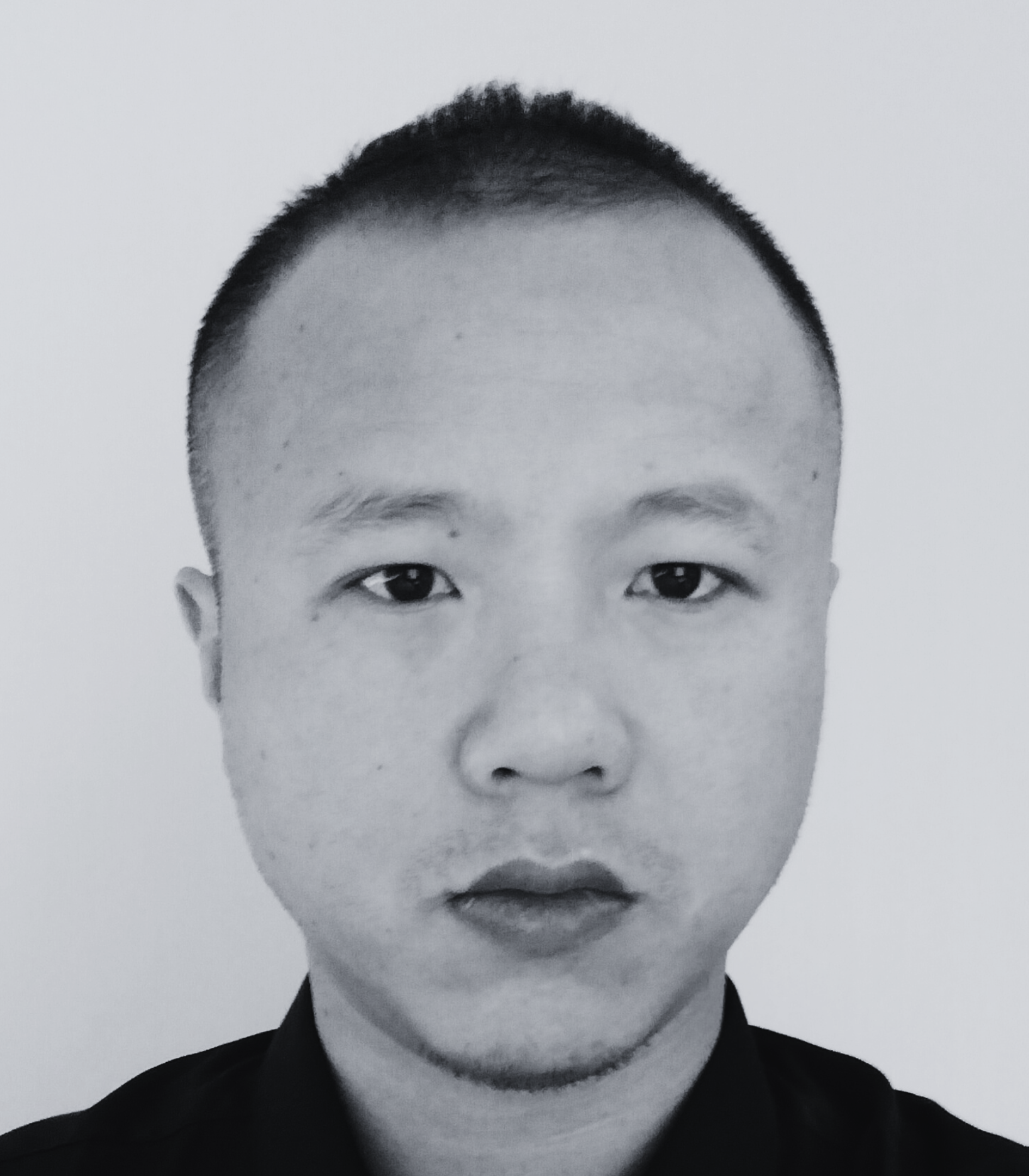
| My queer Chinese ear Dr Gavin Lee, Soochow University | Suzhou Abstract: In this paper, I examine my own queer Chinese ear as a musicologist and listener, as opposed to queer Chinese sounds produced by music-makers. Focusing on the co-constitutive relation between ear and voice, I elaborate on the often unrecognized capacities of the ear for building musical worlds, where most metaphors of agency are expressed through voice—“envoice,” “give voice to.” Furthermore, it is ears which ultimately construct and produce voices, for an unheard voice does not exist. Unfortunately, it is often through prejudiced filters that queer and Chinese voices are heard—referring both to speakers’s accents and to their (often disparaged) capacity to produce knowledge. Against voice stereotyping, the ear can adopt a new way of hearing that is more humane and compassionate, because ears are world-builders. Curious ears reach out for all kinds of sounds that breakdown identity siloes—otherwise people with multiple identities will end up with ever shrinking playlists! My queer Chinese ear listens out for a new world to come that is queer and Chinese friendly, but not constricted to just those identity boxes. Dr Gavin Lee is Assistant Professor of Music at Soochow University (PRC). He is a scholar of music studies at the intersection of global musical modernisms, queer and decolonial theory, affect, posthumanism, and musical Asias. His work is published by the Journal of the Royal Musical Association, Current Musicology, Music Theory Spectrum, Music Analysis, and Routledge. An assistant professor at Soochow University, China, Lee is the founding co-chair of the AMS Global East Asian Music Research study group and the SMT Global Interculturalism and Musical Peripheries group, and serves in the leadership of LGBTQ+ committees across the music societies. |
Panellists
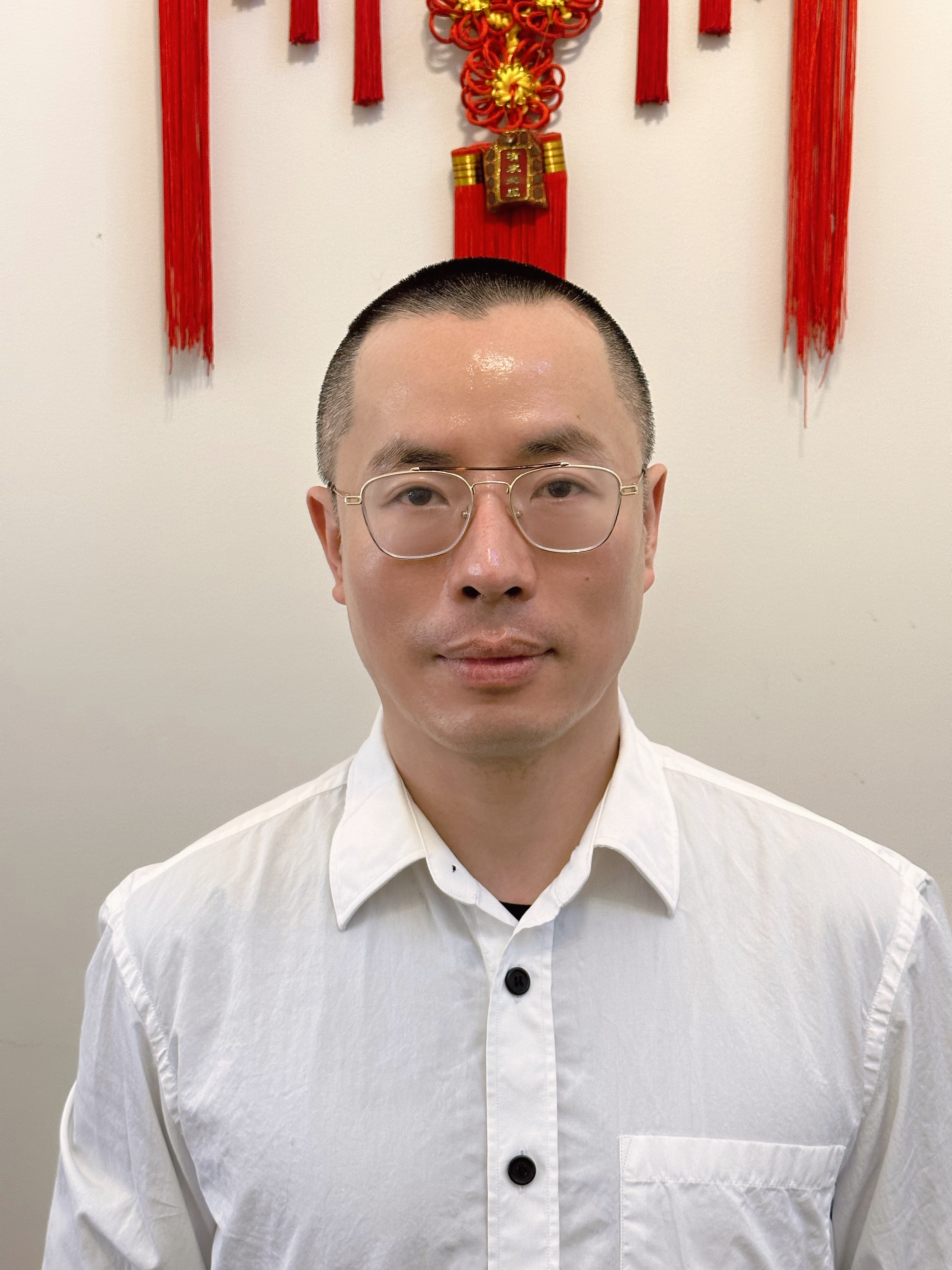 | Making home (from) afar through the gendered and sexualized linkage A/Prof Charlie Yi Zhang, University of Kentucky | Kentucky Abstract: This presentation focuses on two Thai Boys’ Love (BL) TV dramas, I Told Sunset About You (Line TV, 2020) and To Sir, With Love (GMM One, 2022), to probe the cultural and politico-economic dynamics shaped by China’s “Belt and Road” initiative to increase its presence in Southeast Asia. The Thai BL genre has emerged as a prominent player in transnational queer fandom and the queer cultural industry by integrating the hyper-romanticized queerness popularized by Japanese BL and androgenous masculinity featured in Korean pop culture into its ostensibly gay-friendly sociocultural milieu. My analysis of these TV shows indicates that by centering on Chinese diasporic communities and foregrounding the fragile, scholarly style of manhood central to the Confucian tradition, the Thai BL genre has acquired new features with Chinese characteristics, allowing it to attract an enormous number of Chinese fans. This masculinizing and queering move, I argue, should be critically evaluated in the context of China’s recent global outreach. On the one hand, it recreates linguistic, cultural, and ethno-racial ties with the motherland to build a “home from afar,” which appeals to the new generation of Chinese citizens encultured in the nationalistic frenzy promoted by the party-state. On the other hand, this gendered and sexualized “home from afar” provides a platform for Chinese media conglomerates such as Tencent Video and iQiyi to increase their overseas investment and strengthen the relationship between China and the Chinese diasporas in Southeast Asia to sponsor the state’s geostrategic agenda in the region. A/Prof Charlie Yi Zhang is Associate Professor of Gender and Women’s Studies at the University of Kentucky. He specializes in neoliberal globalization and its cultural and material articulations through gender, sexuality, race, and class in the Asia-Pacific region. His first monograph, Dreadful Desires: The Uses of Love in Neoliberal China (Duke University Press, 2022) won the 2023 Annual Book Prize of Southeast Conference of the Association for Asian Studies. Zhang's research has been published in leading journals of gender and sexuality studies, Asian studies, American studies as well as media and cultural studies. His teaching interests diverse topics from include social movements to gender and sexuality in East and Southeast Asia. Email: charlie.zhang@uky.edu |
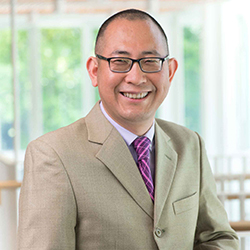
| Queer global south: Digital video activism and queer minor transnationalism Dr Hongwei Bao, University of Nottingham | Nottingham Abstract: In the past two decades, despite the constant political repression and media censorship of LGBTQ+ issues inside China, Chinese queer activists have been actively making transnational connections and forging international solidarities with queer people worldwide. Such transnational activism often uses digital videos and films for self-representation, community building and political activism. It frequently goes beyond the Sinophone context and the sphere of Europe and North America; its reach extends to other parts of Asia, Latin America and the African continent. Such activism is exemplified by the Queer University Africa project (2017-2019), ‘How Can We See (Each Other)’ film programme (2020) and the Imagining Queer Bandung project (2021). In these projects that involve digital videomaking workshops and film festivals, queer filmmakers and activists from different parts of the world meet each other and share their creative and activist work. In the process, they articulate a transnational and decolonial queer politics based on the cultural imagination of ‘queer Global South’ and ‘queer Bandung’. Such a politics disrupts a Euro-and -US-centric notion of queer globalisation; it also challenges the heteronormativity, homonormativity and homonationalism that are shaped by nationalist and capitalist reifications of sexuality, identity and desire. It epitomises a form of queer ‘minor’ transnationalism working at the grassroots level and offers an alternative mapping of the queer world away from its imagined centre in the Global North. Dr Hongwei Bao is Associate Professor in Media Studies at the University of Nottingham, UK, where he directs the Centre for Contemporary East Asian Cultural Studies. He is the author of four monographs on Chinese queer culture: Queer Comrades, Queer China, Queer Media in China and Contemporary Chinese Queer Performance. He co-edits the Routledge Handbook of Chinese Gender and Sexuality, Bloomsbury book series Queering China: Transnational Genders and Sexualities and de Gruyter book series Oyster: Feminist and Queer Approaches to Arts, Cultures and Genders. Email: Hongwei.Bao@nottingham.ac.uk |

| The gender plan of nation-building: Voices from China's LGBTQ+ activists Ausma Bernot, Charles Sturt University | Brisbane Abstract: What do traditional gender roles have to do with authoritarian state power? The answer to this question requires a two-step explanation. First, research shows clear links between misogyny and homophobia/transphobia, a link tested over decades. Second, authoritarian leaders commonly deploy misogynistic and/or anti-LGBTQ+ strategies of governance, such as political narratives, laws and regulations, or censorship guidelines. I term this this phenomenon the gender plan of nation-building. In this paper, I explore the effects of China’s gender plan of national building in the mixed digital and physical spheres on LGBTQ+ populations. The paper builds on 26 semi-structured interviews with LGBTQ+ advocates and activists from 12 provinces and regions in China. The paper explores how LGBTQ+ activists are othered, coerced and co-opted into compliance, but also engage in resistance within intertwined digital and physical spaces of restriction. Ausma Bernot is a Postdoctoral Researcher at Charles Sturt University. Being fluent in Mandarin and building on existing networks in China, Ausma has used primary and secondary sources to research both surveillance technology development and governance in China. Ausma’s doctoral research explores the dynamic interaction between surveillance technologies and social context and questions totalisation of surveillance in China and the world. When she is not reading or writing about surveillance, you could find her exploring the wonders of the nature around Queensland. Email: ausma.bernotaite@griffithuni.edu.au |
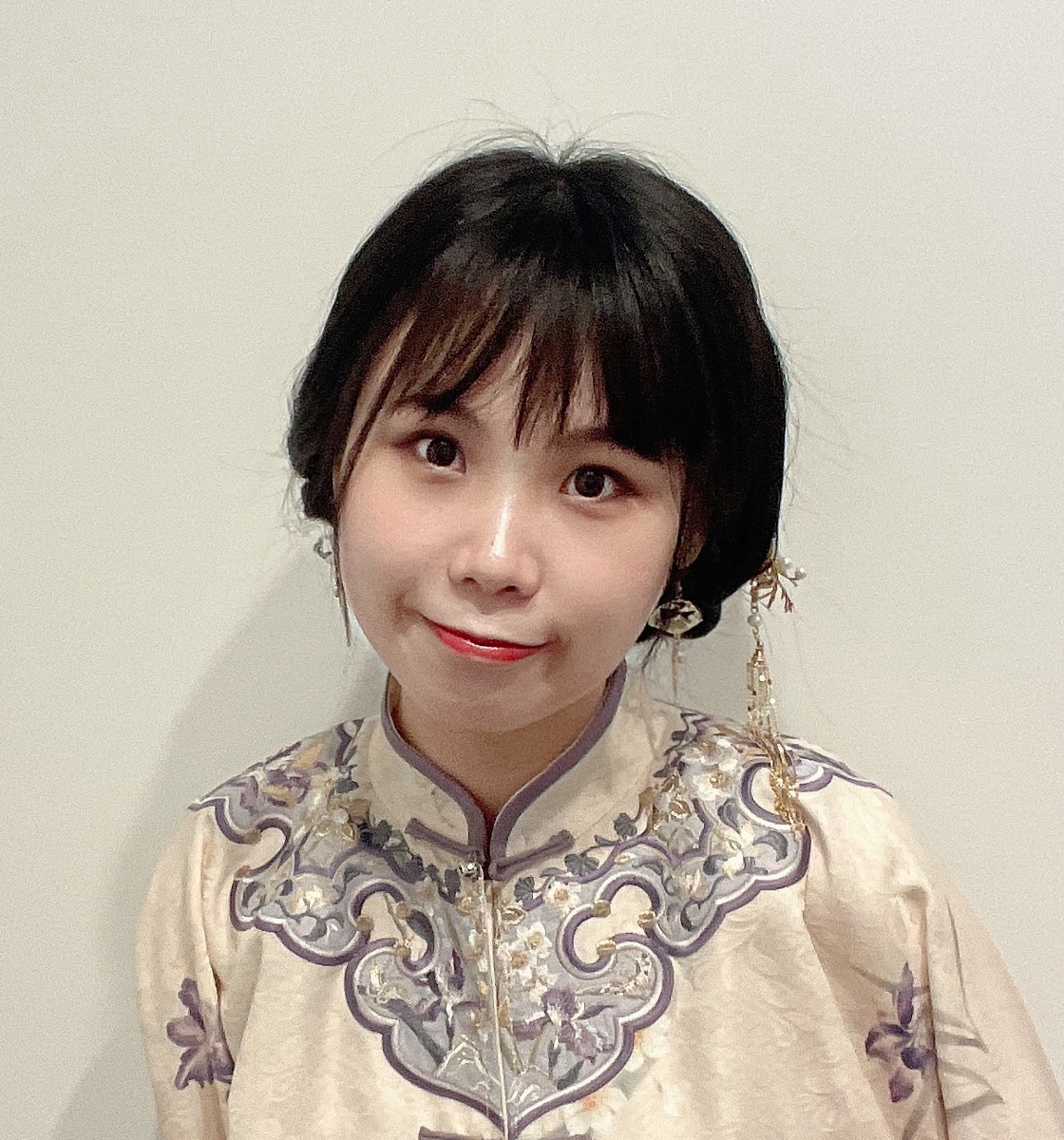
| Tong Xing Peer Support Program: supporting Chinese-speaking LGBTQ+ individuals in Australia and New Zealand Dr Alison Guo, Australia & New Zealand Tongzhi Rainbow Alliance Inc (ANTRA) | Sydney Abstract: Researchers have consistently found out that LGBTQ+ individuals are more vulnerable to mental health issues than their heterosexual counterparts (e.g., Kann, 2016; Przedworski et al., 2015; Semlyen et al., 2016). In Australia, there are many local queer organizations and universities providing one to one LGBTQ+ peer support service. Nevertheless, all these local services are dominated by the English-speaking tradition. Queer Chinese people, especially those who have just arrived in Australia, they might feel more comfortable to discuss their emotions in their native language. This is because mother tongue could not only help them express their emotions and feelings more accurately and naturally to further avoid misjudgment from their local peers, but also boost connection and mutual understandings between two parties based on cultural similarities (Expat Therapy 4U, 2020). Considering such context, ANTRA (Australia & New Zealand Tongzhi Rainbow Alliance) has started the Tong Xing Peer Support Program for mandarin and Cantonese-speaking LGBTQ+ people in Australia and New Zealand since July 2022. As a community-based non-for-profit organisation which aims to support and empower Chinese speaking LGBTQ+ people in Australia and New Zealand, ANTRA’s Tong Xing program is also the first Chinese-speaking queer peer support program in the Pacific Area. Dr Alison Xinyi Guo is a PhD graduate from School of Education at Western Sydney University. Her thesis explores experiences of Chinese straight parents who have a gay or lesbian adult child in mainland China. She is also ANTRA (Australia & New Zealand Tongzhi Rainbow Alliance)'s Research & Development Manager and endeavours to promote rights and voices of Chinese LGBTQ+ people in her current and future research. Email: alison.guo@antra.org.au |
| Exploring Southeast Asian queer migrant biographies: Queer utopia, capacitations, and debilitations Dr Quah Ee Ling, Western Sydney University | Sydney Abstract: Our presentation will discuss a chapter we published recently on Southeast Asian Queer Migration. We explore the migration biographies of queer individuals who have emigrated out of their Southeast Asian home country. Possessing mobility privileges, the respondents in this study, including the authors, emigrate to a relatively more queer-hospitable country where we seek a queer existence with safety, legitimacy, and recognition. The exploratory study makes use of our autobiographical data, and qualitative data collected from in-depth interviews with lesbian, gay, transgender, gender non-binary and queer participants from Singapore, Malaysia, Vietnam, The Philippines and Thailand to understand the circumstances and contexts behind emigration and post-migration settlement experiences. Combining queer studies concepts from Southeast Asia and the Global North, namely, postcolonial queer theorisations and concepts of queer utopia, capacitation and debilitation, we discuss how Southeast Asian migrants of this study navigate their post-migration worlds, pursuing capacitation projects in the face of ongoing debilitations to seek a queer utopia that does not necessarily lead to a happy-ever-after. The chapter addresses these questions: How do we develop survival strategies to capacitate ourselves for queer life-affirming projects? What resources, privileges and reserves do we possess to succeed in capacitation of self and significant others? What kind of trade-offs are implicated? What persistent forms of debility exist in our queer migrant lives? In working out our queer migrant trajectories, we suggest that migrant struggles, queer or otherwise, are symptomatic of broader debilitative conditions of living in which people are continuously seeking, moving, improvising and dreaming of near and far possibilities to survive the present. Dr Quah Ee Ling is Senior Lecturer and Convenor, Culture and Society at Western Sydney University. She is a fire dragon feminist, Singaporean of Chinese-Hokkien, Indonesian-Peranakan heritage, and queer migrant woman with little patience for racism, patriarchy, misogyny and queerphobia. She is the author of Transnational Divorce: Understanding Intimacies and Inequalities from Singapore (Routledge 2020) and Perspectives on Marital Dissolution: Divorce Biographies in Singapore (Springer 2015). Email: eeling@westernsydney.edu.au |
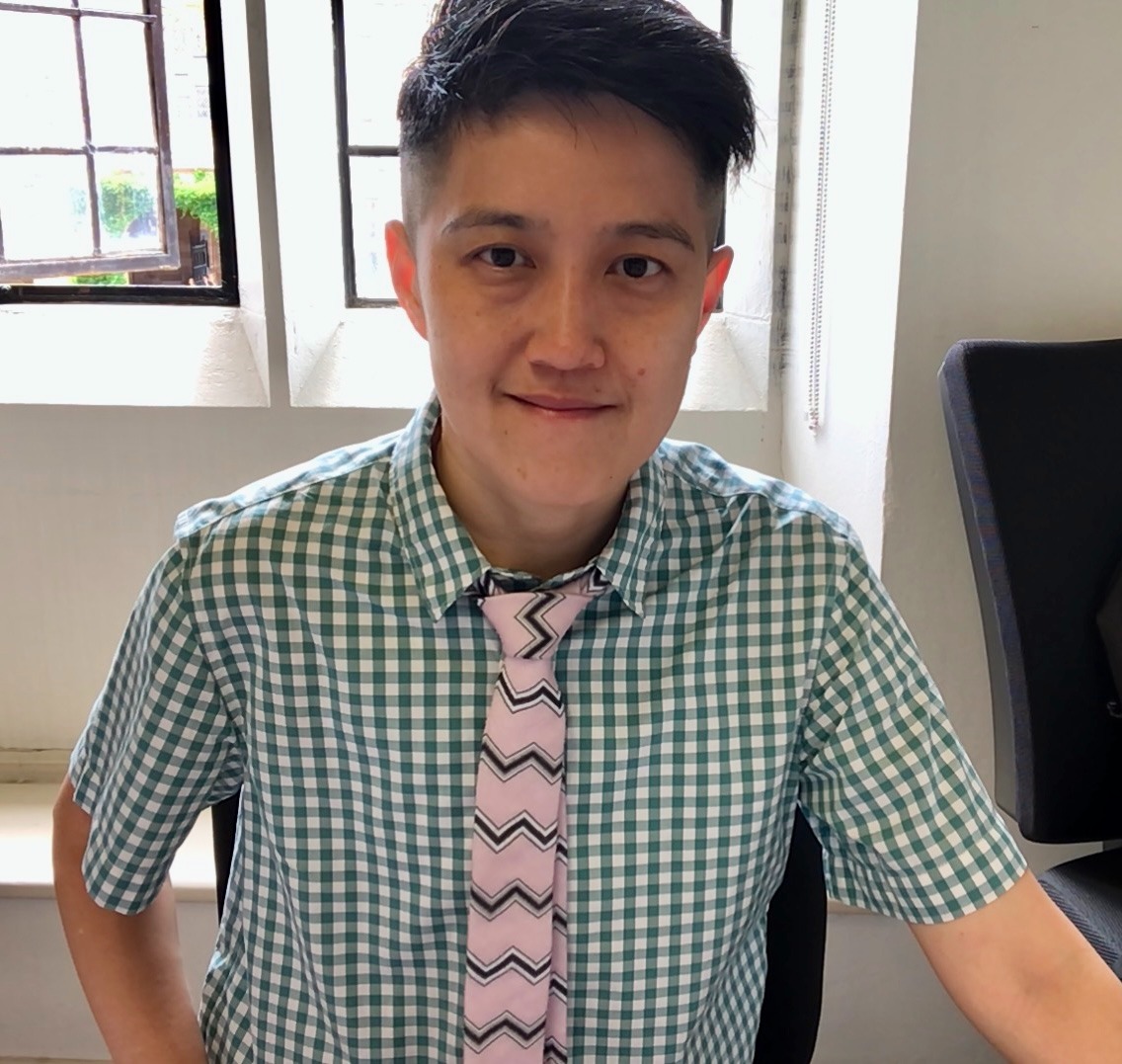
| Exploring Southeast Asian queer migrant biographies: Queer utopia, capacitations, and debilitations Dr Shawna Tang, University of Sydney | Sydney Abstract: Our presentation will discuss a chapter we published recently on Southeast Asian Queer Migration. We explore the migration biographies of queer individuals who have emigrated out of their Southeast Asian home country. Possessing mobility privileges, the respondents in this study, including the authors, emigrate to a relatively more queer-hospitable country where we seek a queer existence with safety, legitimacy, and recognition. The exploratory study makes use of our autobiographical data, and qualitative data collected from in-depth interviews with lesbian, gay, transgender, gender non-binary and queer participants from Singapore, Malaysia, Vietnam, The Philippines and Thailand to understand the circumstances and contexts behind emigration and post-migration settlement experiences. Combining queer studies concepts from Southeast Asia and the Global North, namely, postcolonial queer theorisations and concepts of queer utopia, capacitation and debilitation, we discuss how Southeast Asian migrants of this study navigate their post-migration worlds, pursuing capacitation projects in the face of ongoing debilitations to seek a queer utopia that does not necessarily lead to a happy-ever-after. The chapter addresses these questions: How do we develop survival strategies to capacitate ourselves for queer life-affirming projects? What resources, privileges and reserves do we possess to succeed in capacitation of self and significant others? What kind of trade-offs are implicated? What persistent forms of debility exist in our queer migrant lives? In working out our queer migrant trajectories, we suggest that migrant struggles, queer or otherwise, are symptomatic of broader debilitative conditions of living in which people are continuously seeking, moving, improvising and dreaming of near and far possibilities to survive the present. Dr Shawna Tang is Senior Lecturer in Gender and Cultural Studies at the University of Sydney. She researches and teaches at the juncture of sexuality, gender and race. She is the author of Postcolonial Lesbian Identities in Singapore (Routledge 2016) and editor of Queer Southeast Asia (Routledge 2022). She has worked at the NUS Sociology department and was Deputy Editor of International Sociology and is currently on the editorial boards of the Hong Kong University Press' Queer Asia series, Feminist Theory, Australian Feminist Studies and the Journal of the Society for Asian Humanities. Her twitter handle is shawnatang. Email: shawna.tang@sydney.edu.au |
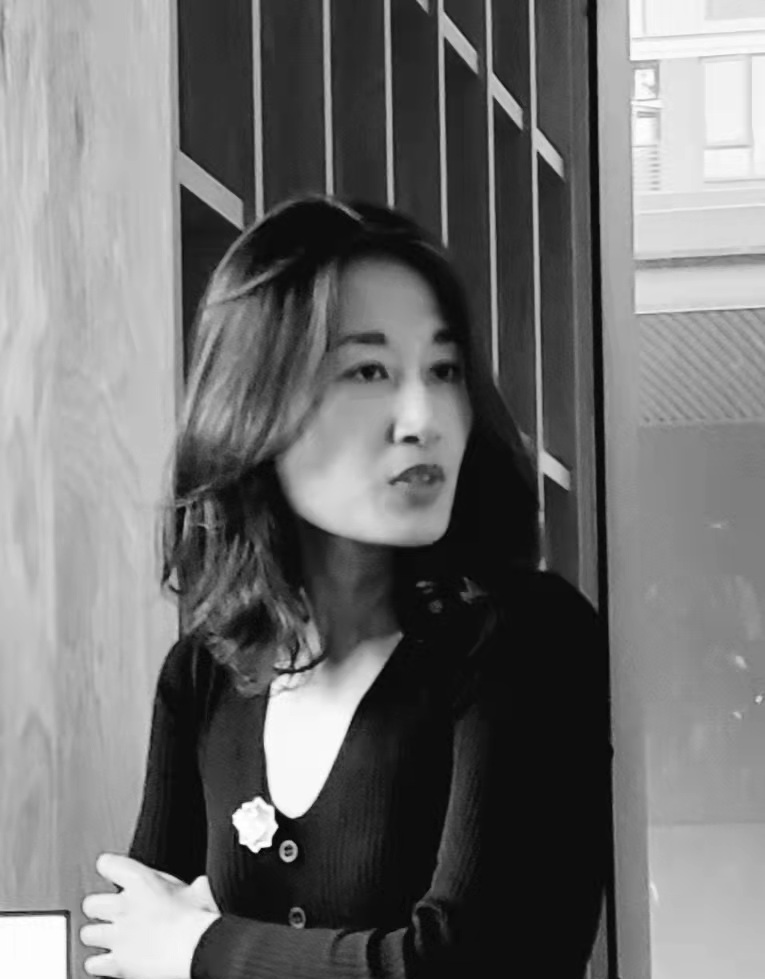
| Gender myth and disciplined sexuality in Geling Yan’s White Snake Dr Meng Xia, University of New South Wales | Sydney Abstract: The memory of marginal subjects is a recurring theme in Chinese migrant novelist Geling Yan’s stories against the backdrop of Modern Chinese history, and it constitutes a narrative of ‘marginal memory’ in her novella White Snake (1998). In this study, I first investigate the multi-perspective narrative structure in Yan’s novella, concerning how private, marginal memory contradicts mainstream narratives of gender and sexuality. Secondly, I expound the memory of the body that mediates this marginal memory, regarding the fantasised body, the disciplined body, resistance, and emancipation of the body. I discuss how gender stereotypes are challenged, gender performance is manipulated, and normalised sexuality is transgressed in power relations, in light of Michel Foucault and Judith Butler’s theories of body and gender politics. Finally, I investigate the ‘demarginality’ that compromises the marginal position of sexual minorities and complicates the marginal memory. Overall, by conceptualising ‘marginal memory’ vis-à-vis public memory, I argue that the narrative of marginal memory being appropriated and silenced constitutes the alternative accounts to rethink historical and individual trauma. I propose that within Yan’s writing emerges a vision of marginality that champions the autonomy and creativity, which arises from queerness and trauma. |
| Global TV format queers post-2010 China Dr Jamie J. Zhao, City University of Hong Kong | Hong Kong Abstract: In the past decade, mainland Chinese nonnormative gender and sexual images and celebrity personas have been greatly proliferated in local TV programs and dramas adapted from foreign formats. Existing scholarship has considered local adaptations of global TV formats gendered and gendering venues to circulate and reconfigure various patriarchal elements transnationally. Yet, I propose to conceptualize certain TV formats, such as those featuring intensive same-sex settings or promoting heteropatriarchal familial-marital ideals, are inherently queer-enacting and -scripted. In this presentation, I analyze the formats and key sequences of several popular Chinese entertainment TV shows from the last decade, including the celebrity parenting reality show Where Are We Going, Dad?, the heterosexual match-making show If You Are The One, and the celebrity impersonation show Your Face Sounds Familiar. Ultimately, I demonstrate that global TV formats serve as a nonnormative stage on which the inevitable coexistence and mutual implications of queer and normative cultures in contemporary Chinese society unfold. Dr Jamie J. Zhao is a global queer media scholar and currently a tenure-track Assistant Professor in Media and Cultural Studies in the School of Creative Media at City University of Hong Kong, HKSAR. Her research explores female genders and sexualities in East Asian and Chinese-language entertainment media, pop culture, and public spaces. She has edited/coedited seven special journal issues and four anthologies on the studies of queer China, queer Asia, female masculinity, and global TV. She serves on the editorial boards of the ICA-affiliated journal Communication, Culture & Critique and the International Journal of East Asian Studies. In addition, she is the founding coeditor for Routledge’s “Transdisciplinary Souths” book series and Bloomsbury’s “Queer China: Transnational Genders and Sexualities” book series. Email: jingzh@cityu.edu.hk |
| Audrey Tang, Taiwan's first trangender politician Sophia Huei-Ling Chen (PhD Candidate), University of Sydney | Sydney Abstract: I’d like to introduce Audrey Tang 唐鳳, Taiwan’s first Minister of Digital Affairs and also the first male-to-female transgender in Taiwan’s political history. This speech, through clips of interview videos, demonstrates that as a public figure, Tang adopts a non-confrontational, light-hearted method for addressing her transgenderism. Tang’s light-hearted mannerism and non-confrontational rhetoric ultimately deflect the public attention, turning the public opinion from considering her transgenderism as something scandalised, moralised and even perverse into something irrelevant and a quirk. Further, by showcasing Tang’s wide-ranging public images, this talk suggests that Tang adopts a fluid, chameleon-like approach to her gender expression, which cannot be easily reduced to normative femininity. In turn, her complex and creative representation of gender, this talk argues, complicates public image of STEM profession, which is conventionally masculinized. As a public figure and even a celebrity, Tang’s public persona should be exemplary, bursting open the binarism of genders. Sophia Huei-Ling Chen, is a PhD candidate in Chinese Studies at University of Sydney. Her thesis focuses on the genre subversion of queer authors from Taiwan with a particular interest in the topics of transnational mobility and cultural allusion. She is currently a recipient of Taiwan’s Ministry of Education scholarship. Her upcoming article is included in Taiwan Literature in 21st Century: A Critical Reader (2023). Email: hche0431@uni.sydney.edu.au |
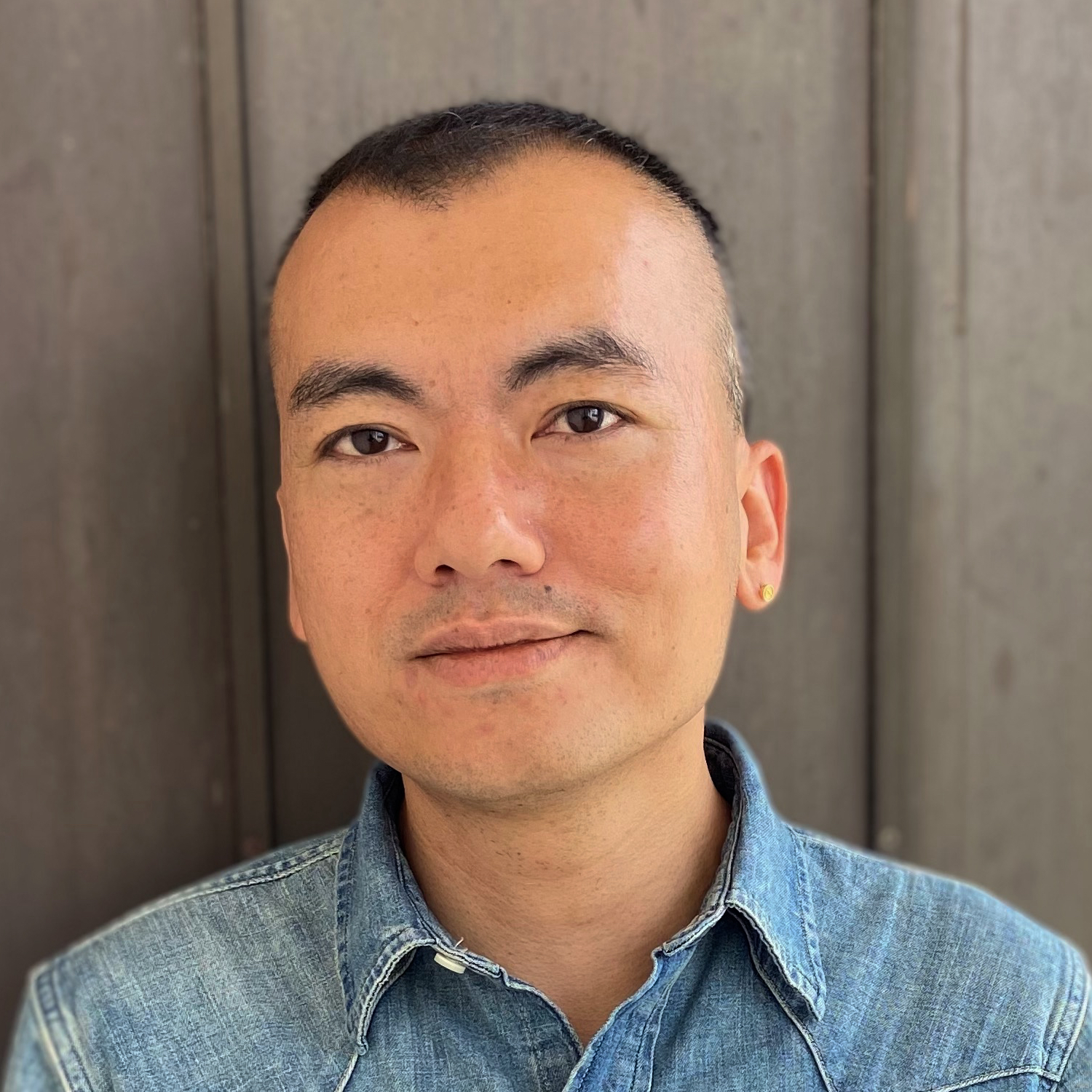
| In print and on the screen: Representing Chinese tongxinglian(s) in Australia’s Chinese-language media Yahia Ma (PhD Candidate), University of Melbourne | Melbourne
*This project is facilitated by a 2023 Asia Study Grant at the National Library of Australia supported by the Harold S. Williams Trust. Yahia Ma is currently a PhD candidate and Graduate Research Teaching Fellow in Translation Studies at the University of Melbourne’s Asia Institute. He is a recipient of the 2023 National Library of Australia’s Asia Studies Fellowship. Yahia has published in Transcultural: A Journal of Translation and Cultural Studies, Melbourne Asia Review, TSQ: Transgender Studies Quarterly and elsewhere. Email: yahia.ma1@unimelb.edu.au |
| ‘Subtle’ as method: Fashioning queer masculinities in the Asian diaspora Sang Thai (PhD Candidate), RMIT University | Melbourne Abstract: The t-shirt has a storied history in shaping masculinities in popular culture, as well as in social activist movements across the globe, transcending class and traditional fashion hierarchies. The Australian Queer Archives (AQuA) based at the Victorian Pride Centre have recently cataloged their 1000th t-shirt in their collection. Presented as part of Melbourne Fashion Festival’s Culture program in 2023, ‘ALL TEE, ALL SHADE* Archived’ exhibition draws t-shirts from the AQuA to reimagine and recontextualize them, fashioning new layers of meaning by drawing through stories from the margins through a queer diasporic Asian intersectional lens. This project form part of my own ongoing work, a broader doctorial project titled ‘All Tee, No Shade’ that explores norm-critical and intersectional approaches that use the t-shirt to disrupt subjectivities that contribute to marginalization and discrimination of the queer Asian diaspora. My family and I arrived in Australia as Chinese-Cambodian refugees in the 1980s. The project employs ‘subtle’ traits as a condition of the Asian diasporic, and queer, experience to reveal how race and sexuality might be performed and expressed through fashion production. Using an autoethnographic approach, the project aims to contribute to broader discourses that decentralize dominant narratives in fashion practice and theory. Sang Thai (he/him) is a designer, lecturer, and creative practice researcher at RMIT University (Australia) based in the lands of Wurundjeri people. He holds degrees in both Architecture (The University of Melbourne) and Fashion Design (RMIT University) and has extensive industry design experience. Sang is currently a PhD candidate in the School of Fashion and Textiles at RMIT University with an interest in masculinity, intersectionality, and inclusive fashion design practices for social change. His doctoral project explores the use of the t-shirt to embody and express the diasporic queer Asian experience in Australia. Sang teaches in the Bachelor of Fashion (Design) program leading pedagogy in Diversity and Inclusion. Email: sang.thai@rmit.edu.au |
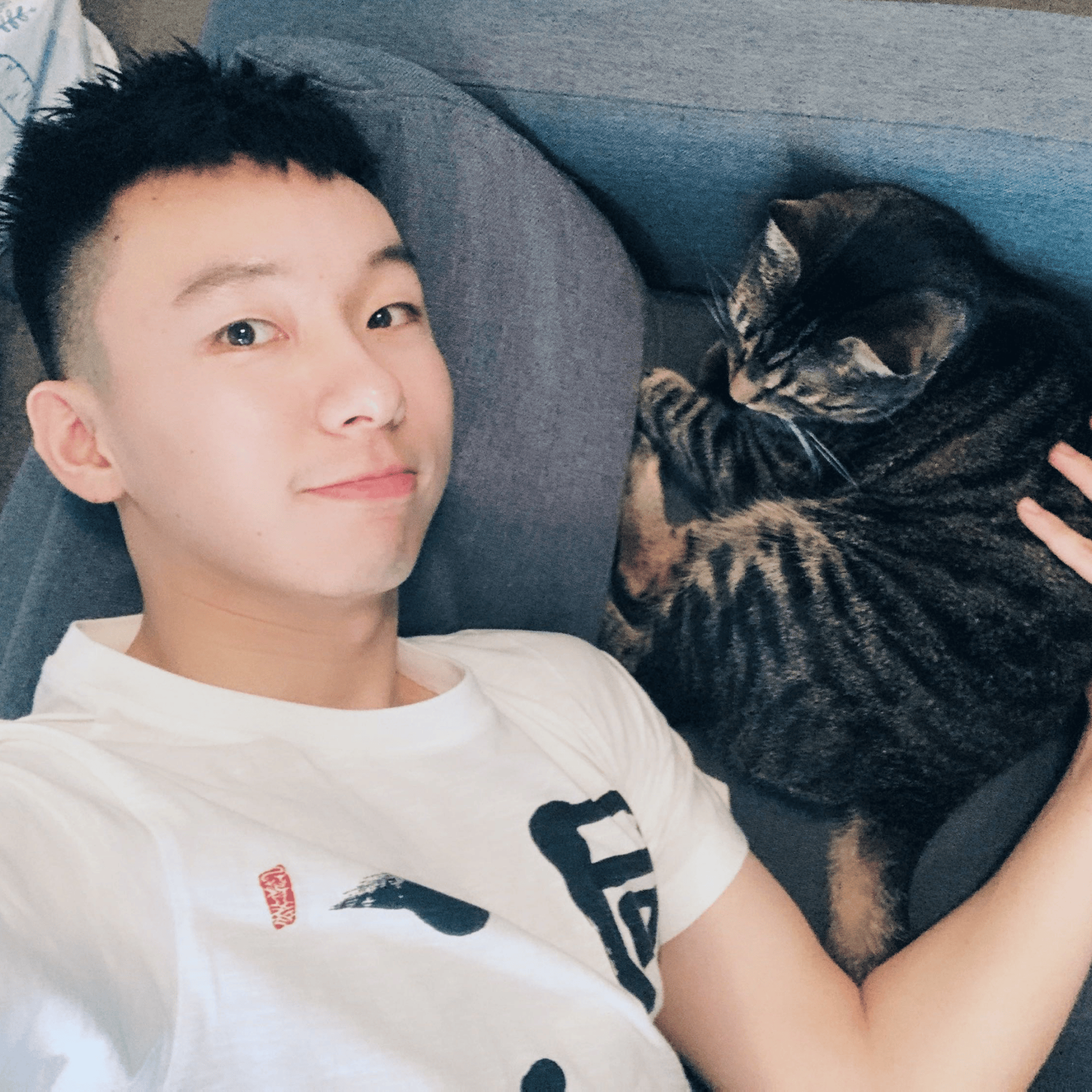  | 為所慾為 WSYW: Uncensored voice for Mandarin speakers in the Australian Queer Community Andy Xie & Maki Cheng, 為所慾為 WSYW Podcast Series | Melbourne Abstract: 為所慾為 WSYW is a Mandarin speaking conversational podcast that amplifies the voices of LGBTQ+ individuals and groups, and creates a space for meaningful and respectful dialogue about a wide range of issues affecting this community. Hosted by Andy and Maki and featuring a diverse group of mandarin speaking guests from around the globe, WSYW delves into topics such as gender and identity, sexual experience, body image, queer relationship and polyamory, hookup culture, public cruising and nudity, BDSM, coming out stories, oral history, STI and HIV awareness, and more. Since the launch in October 2022, WSYW has released over 70 episodes on all major platforms featuring 40 mandarin speakers from a diverse background. The podcast has reached 3K listeners around the world and 82.5K times of episode download. Email: wsyw.podcast@gmail.com |
